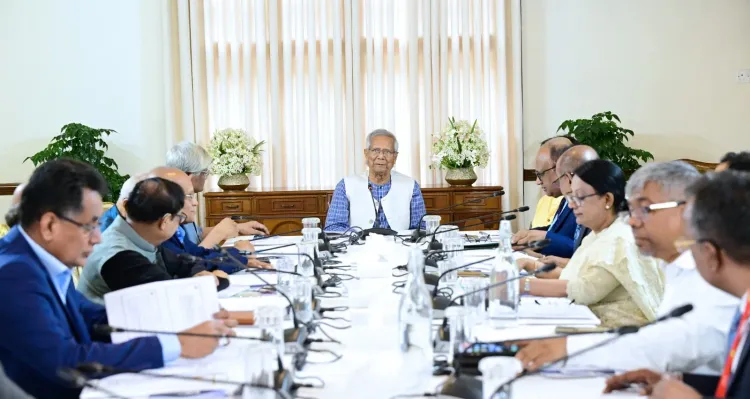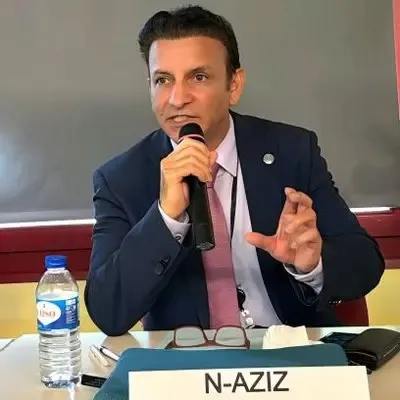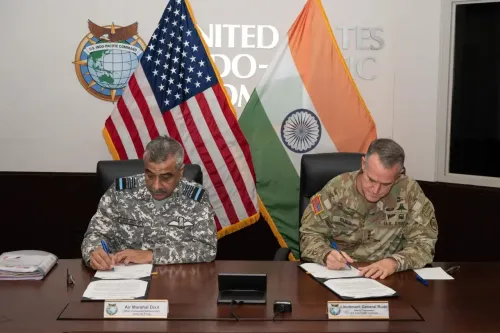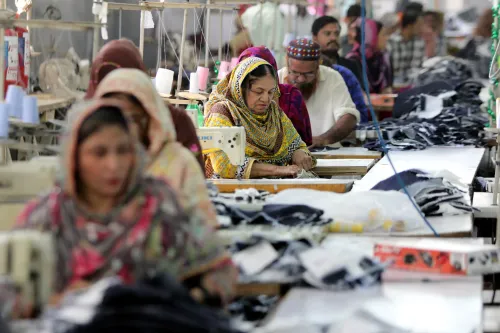Is Bangladesh's Yunus Government Backtracking on the Humanitarian Corridor for Myanmar?

Synopsis
Key Takeaways
- Bangladesh maintains a firm stance against a humanitarian corridor to Myanmar.
- National interests and safety are prioritized in aid discussions.
- Over 1.2 million Rohingyas are currently sheltered in Bangladesh.
- Future aid decisions will involve consultations with all stakeholders.
- Security risks in conflict zones are a major concern for aid delivery.
Dhaka, May 21 (NationPress) Bangladesh's National Security Advisor Khalilur Rahman announced on Wednesday that there is no possibility of permitting a corridor through Bangladesh for Myanmar. He stated that the government under Muhammad Yunus has not engaged in discussions regarding this proposal with any party.
"There has been no conversation with anyone concerning the provision of a corridor to Myanmar through Bangladesh, and we will not even entertain this discussion," Rahman remarked during a media briefing at the Foreign Service Academy in Dhaka.
As reported by Bangladesh Sangbad Sangstha, Rahman highlighted the necessity of safeguarding Bangladesh's national interests and clarified that current talks with the United Nations (UN) are strictly focused on facilitating humanitarian aid, including food and medicine, to Myanmar's Rakhine State, which is experiencing a severe humanitarian crisis.
He stressed that any future decisions will be made in consultation with all relevant stakeholders.
Rahman further indicated that Bangladesh would only contemplate allowing aid to Rakhine State through its territory if the Arakan Army demonstrates a commitment against ethnic cleansing.
In response to inquiries, the National Security Advisor firmly stated that Bangladesh is not under "any external pressure" to create such a corridor.
"We are not facing pressure from any nation, including the United States," he asserted.
Regarding the security implications of delivering humanitarian aid, Rahman mentioned that providing aid in a conflict-ridden environment could pose safety risks for both aid workers and recipients, given the presence of landmines and improvised explosive devices (IEDs) that threaten safety.
Meanwhile, Yunus utilized social media through the Chief Advisor's account, reiterating that no aid has been dispatched to Rakhine yet, as this requires the approval of all relevant parties and the fulfillment of several "prerequisites" that are standard in other humanitarian aid scenarios globally.
Yunus pointed out that Bangladesh has been bearing the burden of hosting over 1.2 million forcibly displaced Rohingyas from Myanmar and cannot accommodate another influx of refugees.
"Due to the worsening humanitarian situation in Rakhine State, the UN and Bangladesh have begun exploring the possibility of providing humanitarian aid. With all other options being impractical due to conflict, Bangladesh emerged as the only viable path. It was anticipated that the UN would manage the distribution of aid through its channels within Rakhine State, while Bangladesh would offer logistical support for transferring aid across the Bangladesh-Myanmar border," read one of the several clarifications posted.
He remarked that Bangladesh believes that assisting Rakhine State could help stabilize the region and create favorable conditions for the return of Rohingya refugees to Myanmar.
Yunus also acknowledged that the Bangladesh government recognizes the importance of maintaining contact with the Arakan Army following their takeover of the Myanmar side of the border. Therefore, Bangladesh opted to "informally contact" the Arakan Army to ensure border security and peace.









